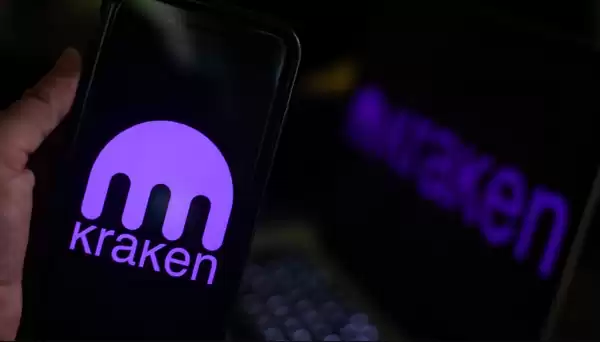-
 bitcoin
bitcoin $87959.907984 USD
1.34% -
 ethereum
ethereum $2920.497338 USD
3.04% -
 tether
tether $0.999775 USD
0.00% -
 xrp
xrp $2.237324 USD
8.12% -
 bnb
bnb $860.243768 USD
0.90% -
 solana
solana $138.089498 USD
5.43% -
 usd-coin
usd-coin $0.999807 USD
0.01% -
 tron
tron $0.272801 USD
-1.53% -
 dogecoin
dogecoin $0.150904 USD
2.96% -
 cardano
cardano $0.421635 USD
1.97% -
 hyperliquid
hyperliquid $32.152445 USD
2.23% -
 bitcoin-cash
bitcoin-cash $533.301069 USD
-1.94% -
 chainlink
chainlink $12.953417 USD
2.68% -
 unus-sed-leo
unus-sed-leo $9.535951 USD
0.73% -
 zcash
zcash $521.483386 USD
-2.87%
Kraken contract trading introduction
Contract trading on Kraken enables traders to speculate on cryptocurrency price movements without owning the underlying assets, offering leverage (up to 50x), short selling capabilities, and hedging opportunities.
Nov 11, 2024 at 10:08 am

Kraken Contract Trading: A Comprehensive Guide
What is Contract Trading on Kraken?Contract trading on Kraken is a derivative trading method that allows traders to speculate on the future price movements of cryptocurrencies without owning the underlying assets. Traders enter into contracts with Kraken to bet on whether the price of a cryptocurrency will rise or fall.
Benefits of Contract Trading on Kraken:- Leverage: Contract trading allows traders to use leverage up to 50x, magnifying potential profits. However, it also increases the risk of losses.
- Short Selling: Traders can bet on the price of a cryptocurrency declining by entering into short contracts. This is not possible with traditional cryptocurrency trading.
- Hedging: Contract trading can be used to hedge against price fluctuations in the underlying cryptocurrency, reducing portfolio volatility.
How to Trade Contracts on Kraken: A Step-by-Step Guide
Step 1: Create a Kraken Account- Visit the Kraken website and click "Sign Up."
- Enter your email address and create a password.
- Follow the on-screen instructions to complete the registration process.
- Kraken requires all users to verify their identity before trading contracts.
- Submit a government-issued ID document (passport, driver's license, etc.).
- Provide proof of residence (utility bill, bank statement, etc.).
- Kraken supports multiple funding methods, including cryptocurrencies, fiat currencies, and third-party payment providers.
- Choose your desired funding method and follow the instructions provided.
- On the Kraken dashboard, click "Trade" and select "Contracts."
- Click "Open Contract Account" and follow the on-screen instructions.
- Kraken offers a wide range of cryptocurrency trading pairs for contracts.
- Select the trading pair you wish to trade, such as BTCUSD or ETHUSD.
- Set the contract size (quantity) you wish to trade.
- Select the contract type (long or short).
- Enter a limit price (optional) to define the maximum or minimum price at which the contract will be executed.
- Review your contract parameters and ensure they are correct.
- Click the "Buy" or "Sell" button to place your order.
- Once your order is executed, it will be visible in your "Positions" tab.
- Monitor the contract performance and adjust your strategy as needed.
- When you are ready to exit the contract, click "Close Contract" in the "Positions" tab.
- Select the desired closing price and confirm the transaction.
Disclaimer:info@kdj.com
The information provided is not trading advice. kdj.com does not assume any responsibility for any investments made based on the information provided in this article. Cryptocurrencies are highly volatile and it is highly recommended that you invest with caution after thorough research!
If you believe that the content used on this website infringes your copyright, please contact us immediately (info@kdj.com) and we will delete it promptly.
- UAE Investor Secures Major Stake in Trump-Linked Crypto Firm Amidst Shifting Geopolitical Tides
- 2026-02-02 07:10:01
- Pepe Meme Coin: Navigating the Hype, Price Predictions, and Future Outlook in 2026 and Beyond
- 2026-02-02 07:05:01
- Blockchain Gaming's Quiet Revolution: Unpacking Latest Trends and Industry Insights Amidst Market Shifts
- 2026-02-02 06:30:01
- IPO Genie, Tokenization, and YouTubers: The Big Apple's Next Big Bet on Democratized Wealth
- 2026-02-02 06:40:02
- Aptos in a Bind: Downtrend Deepens, But a Brief Relief Bounce Looms Before the Next Plunge
- 2026-02-02 07:00:01
- Pi Network, ATL, and Community: Navigating the Currents of a Mobile-First Crypto Movement
- 2026-02-02 07:00:01
Related knowledge

How to close a crypto contract position manually or automatically?
Feb 01,2026 at 11:19pm
Manual Position Closure Process1. Log into the trading platform where the contract is active and navigate to the 'Positions' or 'Open Orders' tab. 2. ...

How to understand the impact of Bitcoin ETFs on crypto contracts?
Feb 01,2026 at 04:19pm
Bitcoin ETFs and Market Liquidity1. Bitcoin ETFs introduce institutional capital directly into the spot market, increasing order book depth and reduci...

How to trade DeFi contracts during the current liquidity surge?
Feb 01,2026 at 07:00am
Understanding Liquidity Dynamics in DeFi Protocols1. Liquidity surges in DeFi are often triggered by coordinated capital inflows from yield farming in...

How to use social trading to copy crypto contract experts?
Feb 02,2026 at 07:40am
Understanding Social Trading Platforms1. Social trading platforms integrate real-time market data with user interaction features, enabling traders to ...

How to trade micro-cap crypto contracts with high growth potential?
Feb 01,2026 at 02:20pm
Understanding Micro-Cap Crypto Contracts1. Micro-cap crypto contracts refer to derivative instruments tied to tokens with market capitalizations under...

How to optimize your workspace for professional crypto contract trading?
Feb 01,2026 at 08:20pm
Hardware Infrastructure Requirements1. High-frequency crypto contract trading demands ultra-low latency execution. A dedicated workstation with a mini...

How to close a crypto contract position manually or automatically?
Feb 01,2026 at 11:19pm
Manual Position Closure Process1. Log into the trading platform where the contract is active and navigate to the 'Positions' or 'Open Orders' tab. 2. ...

How to understand the impact of Bitcoin ETFs on crypto contracts?
Feb 01,2026 at 04:19pm
Bitcoin ETFs and Market Liquidity1. Bitcoin ETFs introduce institutional capital directly into the spot market, increasing order book depth and reduci...

How to trade DeFi contracts during the current liquidity surge?
Feb 01,2026 at 07:00am
Understanding Liquidity Dynamics in DeFi Protocols1. Liquidity surges in DeFi are often triggered by coordinated capital inflows from yield farming in...

How to use social trading to copy crypto contract experts?
Feb 02,2026 at 07:40am
Understanding Social Trading Platforms1. Social trading platforms integrate real-time market data with user interaction features, enabling traders to ...

How to trade micro-cap crypto contracts with high growth potential?
Feb 01,2026 at 02:20pm
Understanding Micro-Cap Crypto Contracts1. Micro-cap crypto contracts refer to derivative instruments tied to tokens with market capitalizations under...

How to optimize your workspace for professional crypto contract trading?
Feb 01,2026 at 08:20pm
Hardware Infrastructure Requirements1. High-frequency crypto contract trading demands ultra-low latency execution. A dedicated workstation with a mini...
See all articles










































































